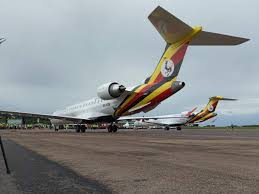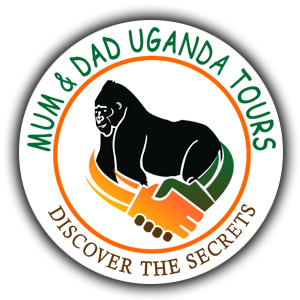How do l get to Uganda for safari?
How do l get to Uganda for safari?To get to Uganda for a safari you’ll typically need to travel by air, as it’s the most efficient and common mode of transportation for international visitors. Here’s a general overview of how to get to Uganda for a safari:
Choose Your Entry Point: Uganda has several international airports, but the main entry points for most international travellers are Entebbe International Airport (EBB), located near the capital city of Kampala, and occasionally the smaller airport in Jinja. Entebbe International Airport is well-connected with various international airlines, offering flights from major cities around the world.
 Book Your Flight: Once you’ve decided on your entry point, you can book your flight to Entebbe International Airport through the airline’s website, travel agencies, or online booking platforms. It’s recommended to book your flights well in advance to secure the best prices and ensure availability, especially during peak tourist seasons.
Book Your Flight: Once you’ve decided on your entry point, you can book your flight to Entebbe International Airport through the airline’s website, travel agencies, or online booking platforms. It’s recommended to book your flights well in advance to secure the best prices and ensure availability, especially during peak tourist seasons.
Obtain Necessary Travel Documents: Before traveling to Uganda, ensure you have all the necessary travel documents, including a valid passport with at least six months validity beyond your intended stay, and a tourist visa. Depending on your nationality, you may be able to obtain a visa upon arrival at Entebbe International Airport or apply for an e-visa online before your trip. Check the official website of the Uganda Directorate of Citizenship and Immigration Control for the most up-to-date visa requirements.
Plan Your Safari Itinerary: Research and plan your safari itinerary based on your interests, budget, and the duration of your stay in Uganda. Consider which national parks and wildlife reserves you’d like to visit, the activities you’d like to experience (such as game drives, boat cruises, or gorilla trekking), and the accommodations that best suit your preferences and budget.
Arrange Airport Transfers or Ground Transportation: Upon arrival at Entebbe International Airport, you can arrange airport transfers or ground transportation to your accommodation or directly to your safari destination. Many tour operators and lodges offer airport pickup services, or you can hire a private taxi or use ride-hailing apps.
Enjoy Your Safari: Once you’ve arrived in Uganda and settled in, it’s time to embark on your safari adventure! Follow your planned itinerary, immerse yourself in the natural beauty and wildlife of Uganda’s national parks, and make unforgettable memories exploring the country’s diverse landscapes and ecosystems.
Choose the Right Time to Visit: Uganda’s climate is generally favorable for safaris throughout the year, but the best time to visit may depend on your specific interests and preferences. The dry seasons, typically from December to February and from June to September, are ideal for wildlife viewing as animals gather around water sources, and vegetation is less dense, making it easier to spot wildlife. However, the wet seasons, from March to May and from October to November, offer lush green landscapes, fewer crowds, and lower prices for accommodations and activities.
Research Wildlife and National Parks: Uganda is renowned for its rich biodiversity and diverse range of wildlife species, including the “Big Five” (lion, leopard, elephant, buffalo, and rhinoceros), primates such as chimpanzees and gorillas, as well as numerous bird species. Research the national parks and wildlife reserves in Uganda to identify which ones align with your safari interests and the specific wildlife you hope to see. Popular destinations for safaris in Uganda include Murchison Falls National Park, Queen Elizabeth National Park, Bwindi Impenetrable National Park, and Kidepo Valley National Park.
Consider Gorilla Trekking: One of the most iconic and unforgettable safari experiences in Uganda is gorilla trekking in Bwindi Impenetrable National Park or Mgahinga Gorilla National Park. Gorilla trekking permits are required and must be obtained in advance through the Uganda Wildlife Authority or authorized tour operators. Permits are limited and can sell out quickly, especially during peak tourist seasons, so it’s essential to book well in advance to secure your spot.
Health and Safety Precautions: Before traveling to Uganda, it’s essential to take necessary health precautions to ensure a safe and healthy safari experience. Consider consulting with a healthcare provider or travel medicine specialist to discuss recommended vaccinations, malaria prophylaxis, and other health considerations based on your individual medical history and travel plans. Additionally, practice good hygiene, drink bottled or purified water, and be mindful of food safety practices to minimize the risk of illness during your safari.
Respect Wildlife and Local Communities: While enjoying your safari adventure, remember to respect wildlife and their natural habitats by observing animals from a safe distance, refraining from feeding or disturbing them, and following the guidance of experienced guides and park rangers. Additionally, engage respectfully with local communities and adhere to cultural norms and customs to promote responsible and sustainable tourism practices in Uganda.
Remember to pack appropriate clothing, gear, and essentials for your safari, including comfortable walking shoes, lightweight clothing in neutral colors, insect repellent, sunscreen, and a camera or binoculars for wildlife viewing. Additionally, consider booking your safari with a reputable tour operator or travel agency that specializes in safaris in Uganda, as they can provide expert guidance, logistics support, and personalised experiences tailored to your interests and preferences.
